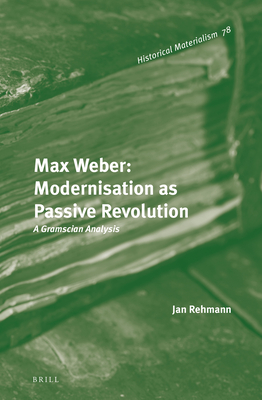
Part of Series
Basing his research on Gramsci's theory of hegemony, Rehmann provides a comprehensive socio-analysis of Max Weber's political and intellectual position in the ideological network of his time. Max Modernisation as Passive Revolution shows that, even though Weber presents his science as 'value-free', he is best understood as an organic intellectual of the bourgeoisie, who has the mission of providing his class with an intense ethico-political education. Viewed as a whole, his writings present a new model for bourgeois hegemony in the transition to 'Fordism'. Weber is both a sharp critic of a 'passive revolution' in Germany tying the bourgeois class to the interests of the agrarian class, and a proponent of a more modern version of passive revolution, which would foreclose a socialist revolution by the construction of an industrial bloc consisting of the bourgeoisie and labour aristocracy. (c) 1998 Argument Verlag GmbH, Hamburg. Translated from German "Max Modernisierung als passive Revolution. Kontextstudien zu Politik Philosophie und Religion im Übergang zum Fordismus".


